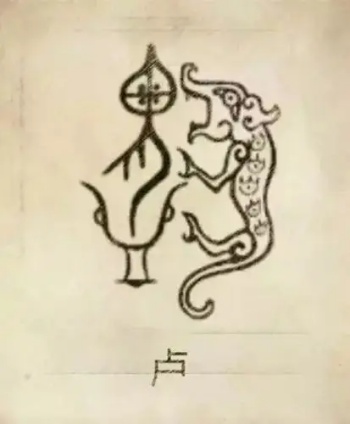The Lu(lú) surname is one of the oldest and most storied surnames in Chinese history. Its origins reflect the rich tapestry of China’s multicultural and multiethnic heritage. For readers curious about Chinese culture, the story of the Lu surname offers a fascinating glimpse into the evolution of Chinese society, family values, and historical traditions.

Ⅰ、Origins of the Lu Surname:
1. The branch of the Jiang surname
The earliest origin of the Lu surname can be traced back to the descendants of Emperor Yan Shennong. During the Western Zhou Dynasty, Jiang Ziya awarded the fiefdom of Qi for his meritorious service in assisting King Wu of Zhou. His eighth-generation grandson, Gao Xi, was awarded the fdom of Lu (present-day Changqing, Shandong) for his military exploits. His descendants adopted the name of the fiefdom as their surname, forming main branch of the Jiang surname, the Lu surname.
2. The Gui Clan and the State of Lu
Another branch of the Lu family originated from the descendants of Emperor Shun, who established the State of Lu (in present-day Hubei Province). This small state was conquered by the Chu Kingdom during the Spring and Autumn Period (770–476 BCE), and its people adopted "Lu" as their surname.
3. Occupational and Cultural Influences
During the Han Dynasty (206 BCE–220 CE), some Lu families derived their surname from the official title "Dang Lu Ling Cheng," which referred to officers in charge of wine production. Additionally, the name "Lu" was associated with the legendary sword "Zhan Lu," further diversifying its origins.
4. Ethnic Integration and Name Changes
During the Northern and Southern Dynasties (420–589 CE), several ethnic groups, such as the Xianbei, adopted the Lu surname as part of their Sinicization. This included clans like Molu and Fulu, who simplified their names to Lu.
Ⅱ、Historical Figures:
1. Political and military field
Lu Wan: The first King of Yan in the Han Dynasty, Liu Bang's fellow townsman, and meritorious figure in the Chu-Han War.
Lu Xuan: The core figure who promoted the sinicization of the Xianbei, laying the foundation the century-old family of Lu in Fan Yang.
Lu Xiangsheng:A Ming Dynasty general, Lu Xiangsheng is remembered for his loyalty and bravery in resisting the invading Qing forces, ultimately sacrificing his life for his country.
Lu Kun: The governor of Guangdong and Guangxi in the Qing Dynasty, who presided over the compilation of "Guangdong Maritime Defense Review" and strengthened the governance of the frontier.
2. Literary and artistic field
Lu Zhaolin: One of the "The Four Great Masters of the Early Tang Dynasty" , who initiated the seven-character ballad style with "Ancient Intent of Chang'an".
Lu Lun: One of the "Top ten talents" of the Dali era, whose frontier poem "Song of the Frontier" has been recited for thousands of years.
Lu Zhi: A great of Yuan Dynasty scattered music, whose works were praised as "natural and beautiful language, like lotus flowers in clear water".
3. Ideological and academic field
Lu Zhi: A master of classical studies and politician in the Eastern Han Dynasty, under whose tutelage both Liu Bei and Gongsun Zan studied, and C Cao praised him as "famous all over the world, and a Confucian master".
4. Tea culture
Lu Tong :Known as the "Tea Sage," Lu Tong’s Seven Bowls of Tea elevated tea drinking to a spiritual and philosophical practice, profoundly influencing Chinese tea culture.
Ⅲ、Cultural Significance:
1.Ancestral Halls and Family Mottos
The Lu family’s ancestral home is in Fanyang (modern-day Dingzhou, Hebei), a region that became synonymous with the Lu surname during the Wei and Jin Dynasties. The family motto, "Qing Zheng Lian Jie" ("Purity, Integrity, and Honesty"), reflects their emphasis on moral values and scholarly pursuits.
2.Contributions to Literature and Art
Lu family members have made significant contributions to Chinese culture. For example, Lu Lun, a Tang Dynasty poet, is celebrated for his frontier poems, while Lu Wenchao of the Qing Dynasty was a master of textual criticism, preserving ancient Chinese texts.
Ⅳ、Social Impact:
1.Population and Distribution
Today, the Lu surname with a population of approximately 5.36 million. The largest concentrations are in Guangdong, Guangxi, and Shandong provinces. The surname has also spread globally, particularly in Southeast Asia and among overseas Chinese communities.
2.Global Connections
The Lu surname’s influence extends beyond China. For example, the Nguyen Dynasty in Vietnam included prominent Lu descendants, and the Korean Gyeongju Lu clan traces its roots back to Chinese ancestors. These connections highlight the Lu surname’s role as a cultural bridge in East Asia.
Conclusion:
The Lu surname’s 3,000-year history is a microcosm of Chinese civilization, reflecting the interplay of tradition, migration, and cultural exchange. From its origins in ancient China to its modern global presence, the Lu family embodies the enduring values of scholarship, integrity, and resilience. For those interested in Chinese heritage, the story of the Lu surname is a testament to the richness and diversity of Chinese culture.